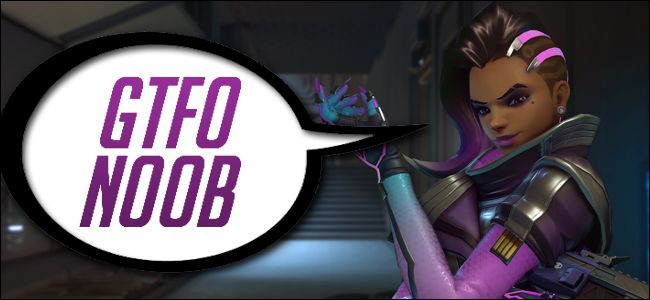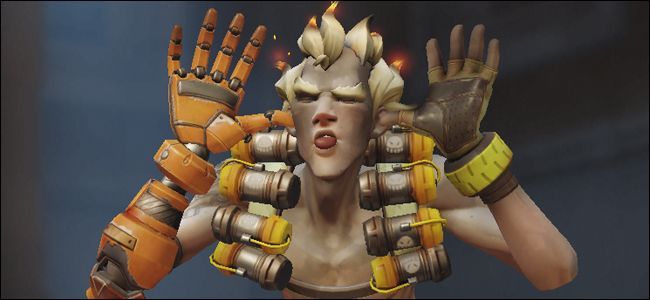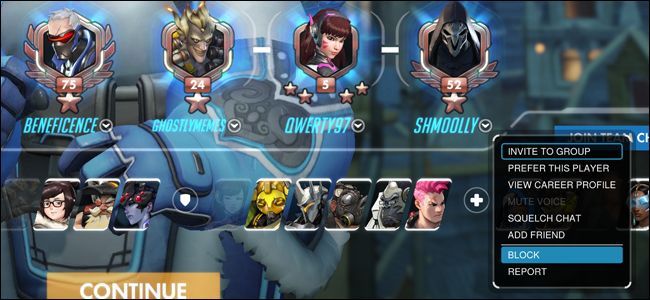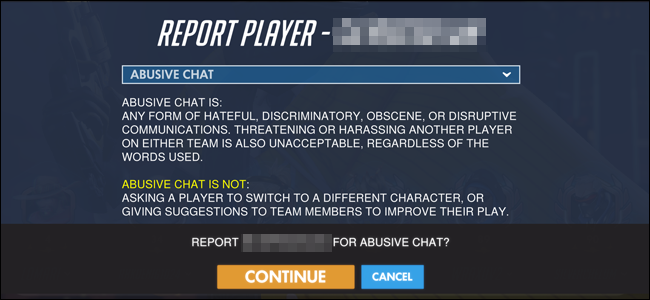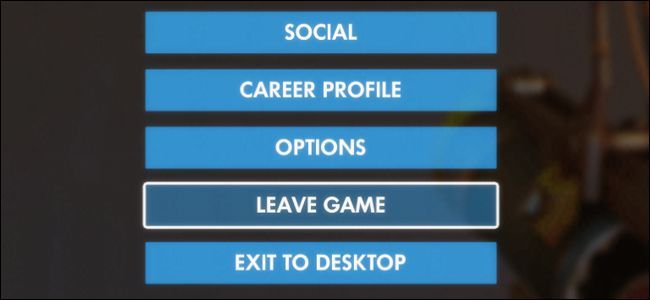Quick Links
A wise man once said that a normal person, plus anonymity, plus an audience, equals...well, something we can't reprint on a family-friendly website. But the tendency for anonymous crowds to be abusive is well-known, and adding in the competitive nature of online multiplayer games doesn't help things.
If you've found yourself harassed by abusive players, there are a few things you can do to make your online games less frustrating. Unfortunately, there's no way to completely inoculate yourself from abusive gamers...aside from staying offline altogether. But you can at least try to have a better time with these tips.
Don't Be a Jerk
Okay, this seems like fairly obvious advice: any reasonable person knows that being mean to other people is a good way to get them to be mean right back. But you know who wouldn't consider not being a jerk to deter other jerks? That's right, a jerk. So for the sake of completeness, we'll remind you that the golden rule still applies to online games: treat others the way you want to be treated. Yes, even if they're Hanzo mains.
Don't Engage
The number one thing that an abusive player wants to get from his or her interactions is attention. Therefore, the one thing you shouldn't do when you're actively being harassed is respond in any way.
This is harder than it sounds. If someone is being obnoxious or stupid, or hurling racist or sexist abuse at you, a desire to quip right back and shame them into silence is natural. Don't do it. Remember that this person is gaining some kind of satisfaction from abusing anonymous strangers---there's very probably nothing you could say, however correct or justified, that would stop them or change their mind. On the contrary, any kind of response is only going to encourage them to keep up the abuse.
Remember, everyone in the current game is there because they want to be playing. In this exchange, you have the ultimate trump card: the power to leave it at any time.
Block and Mute
Most multiplayer games with either text or voice chat have some kind of function that allows you to mute individual players. Some go even further, allowing you to either block the player from being paired with you in any game, or to simply turn off text and voice chat for everyone by default, leaving communication limited to in-game character messages like "group up" or "nice job."
Blocking or muting a single player is preferable to blocking everyone, of course---most multiplayer games are vastly improved by communication and teamwork. But if regular voice or text interactions with other players is affecting your ability to enjoy the game, don't hesitate to simply do away with it.
Report Them
Most games with a managed multiplayer element have a report option. Don't be afraid to use it. If a player is being legitimately abusive, there's no reason not to tell on them. Some developers have an iffy track record with actually policing their games, but if multiple reports show a player is constantly toxic to others to the point of impacting their ability to enjoy the game, they'll usually make use of their administrative powers and issue some sort of punishment. These can range from "time out" restrictions, including revoked communication privileges or mode access, all the way to a lifetime account ban.
Play With Friends
If you already know all the people on your multiplayer team, you remove the anonymous element of online abuse. For that reason, it's a good idea to play with friends as often as possible. They needn't be people you know in real life, either---frequent teammates on your Friends List or even just members of the same in-game guild can raise the sociable expectation of the virtual room. It's usually enough to deter people who would normally be insulting or abusive with strangers.
Choose the Right Game Mode
This is a surprisingly big one that many players don't think about: it's important to pick the game mode that's right for the kind of atmosphere you're looking for. If you want to play a game casually, avoid the more competitive servers or game sections. This goes double if the game has a dedicated "Pro" or "Ranked" mode, where the rewards are permanent status changes or worldwide leaderboard positions. Shooters like Counter-Strike and MOBAs like League of Legends are notorious for this kind of high-pressure, stressful communication.
Where possible, choose a game mode that pits multiple players against computer opponents or some other non-player challenge. These modes are generally referred to as player-versus-environment or PvE. Not all games have them, but those that do tend to be much less competitive and stressful than standard multiplayer or ranked matches.
The Nuclear Option: Try Another Game
If at any time the social element of a game is upsetting to you, remember, you can always quit. And if interactions with other players are causing the game to no longer be fun, that's probably what you should do. After all, if you're not enjoying your time playing a game, what's the point?
Keep in mind that there are hundreds of new games for each console released every year, and thousands on the PC. Odds are fairly good that you can find a more enjoyable game, with a more enjoyable community of players, with which to spend your time.
Image credit: Blizzard

